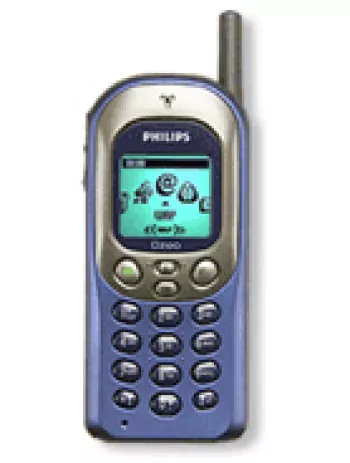
Overview of the Philips S200
The Philips S200 is a feature phone that was introduced into the market in January 2006. Known for its simplicity and functional approach, this device catered primarily to users seeking basic communication needs without the complexities of modern smartphones. Despite being discontinued now, in its time, it offered a robust set of features for its category.
Network and Connectivity
The Philips S200 supported GSM technology, covering the 2G bands of GSM 900 and 1800. This made it suitable for optimal coverage in specific regions, particularly in urban areas where these bands were prominent. However, it did not support GPRS or EDGE, indicating its primary role as a simple communication tool rather than a device with advanced internet capabilities.
Launch and Availability
The device was officially announced in January 2006. Despite its discontinued status now, during its production period, it managed to capture a segment of consumers who appreciated its minimalist design and functionality.
Design and Build
Featuring dimensions of 101 x 44 x 18.1 mm and weighing 85 grams, the Philips S200 was compact and lightweight. This made it an easy fit for pockets and bags, aligning with the convenience factor for users on the go. It used a Mini-SIM format, which was standard for feature phones of its generation.
Display Characteristics
The Philips S200 came with an STN monochrome graphics display. The resolution was 96 x 64 pixels, displayed across 5 lines with a 3:2 ratio. Though modest by today’s standards, at the time, this was adequate for basic text and menus, fulfilling the core needs of communication via SMS and critical alerts.
Memory and Storage
In keeping with its feature phone classification, the Philips S200 did not support external card slots for memory expansion. However, it had a basic phonebook for storing contacts and could log 30 call records covering received, dialed, and missed calls.
Sound and Alerts
The phone lacked a loudspeaker and a standard 3.5mm audio jack, aligning with its straightforward functionality. It did, however, support vibration alerts and polyphonic ringtones (16 tones), allowing users to customize their auditory notifications to some degree.
Communication Features
While the Philips S200 did not incorporate advanced communication technologies such as Bluetooth, WLAN, positioning services, radio, or USB connectivity, it served well in its basic capacity. Users primarily communicated via SMS and EMS, reflecting the focus on essential messaging services.
Battery Life and Performance
One of the strong points of the Philips S200 was its battery life. It housed a removable Li-Ion 1000 mAh battery, providing up to 330 hours of standby time and 3 hours of talk time. This made the device a reliable option for users requiring extended battery performance without frequent charging.
Additional Features and Functionalities
In terms of entertainment, the Philips S200 came with three built-in games, offering a simple diversion for users. However, it did not support Java applications or a browser, which limited its expandability beyond the included functionalities.
Concluding Remarks
In essence, the Philips S200 was a testament to a time when mobile phones were primarily about telecommunication rather than being multi-functional smart devices. Its iconic simplicity and focused feature set made it appealing to users who appreciated reliability and ease of use over technological complexity. Although it lacks the advanced capabilities of contemporary smartphones, the S200 serves as a nostalgic reminder of the early days of mobile communication.
Key Features of Philips S200
- Compact and Lightweight Design: 101 x 44 x 18.1 mm, 85 g
- Monochrome STN Display: 96 x 64 pixels resolution
- Phonebook Functionality
- Call Records: Store up to 30 recent calls (received, dialed, missed)
- Polyphonic Ringtones: Supports 16-tone ringtones
- Removable Battery: Li-Ion 1000 mAh battery
- Long Standby Time: Up to 330 hours
- Simple SMS and EMS Messaging
Disadvantages of Philips S200
- Outdated GSM technology with no support for GPRS or EDGE.
- Discontinued status, implying no official support or updates.
- Lacks advanced display with only monochrome graphics.
- No expandable memory card slot.
- Absence of camera feature.
- No loudspeaker or 3.5mm audio jack for external sound devices.
- No wireless connectivity like WLAN, Bluetooth, or positioning systems.
- No built-in FM Radio or USB support.
- Limited to SMS and EMS messaging without a browser or Java support.
- Limited to only three built-in games with no option for additional downloads.

View Also
More Phones
All Rights Reserved +14266 Phones © Mobilawy 2025

























